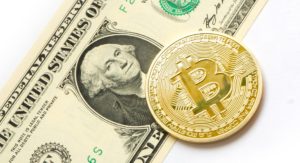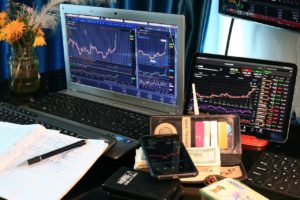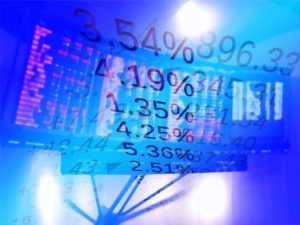Table of contents
When traders choose a market, they look for optimal trading conditions and good opportunities. Today, many millions of traders around the world are convinced of the features of the forex market. We will focus on the advantages of Forex trading in this article.
High liquidity on the foreign exchange market
When a trader starts Forex trading, one of the most important advantages is the liquidity of the market. According to a three-year report of the Bank for International Settlements, the daily turnover is around 5 billion US dollars per day. In this regard, foreign exchange swaps and spot transactions account for the main turnover with 4 billion US dollars. Foreign exchange liquidity facilitates trading and also makes CFD trading in forex instruments popular among traders.
Liquidity by definition is the ability of a currency pair to be traded (bought/sold) on demand. When you trade major currency pairs, you trade in an extremely liquid market. However, you trade based on the available liquidity of currency pairs. Not all currency pairs are liquid. In fact, currencies have different levels of liquidity depending on whether they are major (Forex Major), minor or exotic pairs (including emerging market currencies).
High liquidity ensures a reliable market. Extreme price movements with price gaps are rather unlikely. This also makes Forex trading very popular with CFD trading.
Low costs and small spreads in Forex trading
When trading CFDs and foreign exchange, there are often no commissions for the most important underlyings such as Dow Jones, DAX, gold or EUR/USD. With a conventional CFD account, brokers generate income from spreads. The bid/ask spread describes the difference between an ask and bid price, i.e. between the buy and sell price.
The ask price is the price at which the market maker is willing to buy the underlying from the trader. On the other hand, the bid price is the price at which the market maker is willing to sell. In CFD trading with foreign exchange, the spread is the most important item that a trader has to pay in CFD trading. The lower the spread, the lower the cost for the CFD trader and vice versa. This is especially crucial in day trading, where you open and close a large number of CFDs. Each time you open a CFD, you pay the spread.
During trading hours, the spread is fixed under ordinary market conditions. Large spreads may indicate volatility or an illiquid market. The more often an asset is traded, the closer the buy and sell prices are. Popular CFD underlyings such as the Dow Jones, DAX index or such Forex majors as EUR/USD have relatively small spreads.
Long and short: speculate on rising and falling forex markets
An essential part of forex trading, as in CFD trading, is the ability to take a short position. If you forecast a fall in the value of the euro against the US dollar, you should sell this pair (short sale). Your profit or loss depends on how much the euro falls against the US dollar.
Long positions are opened by buying financial contracts such as CFDs. With long CFDs, one speculates on a rising market and profits accordingly.
The long/short strategy can deliver returns in all market phases. In the long strategy, part of the portfolio is focused on rising prices (long positions). If the market falls or is in a downtrend, one can make profits with short CFDs.
Forex trading security through regulation
Forex trading involves one of the largest markets in the world. Since private investors can easily engage in online forex trading, the question of regulation arises. The forex market is very well supervised and many market participants are controlled by more than one regulatory body. This makes the forex market one of the safest markets for forex trading.
Despite the colossal size of the forex market, there are no uniform legal regulations as there is no central regulatory body that controls it 24/7. In turn, there are several national organizations around the world that oversee domestic forex trading as well as other markets to ensure that all forex providers adhere to certain standards. For example, in the UK, the regulator is the Financial Conduct Authority (FCA) or in Germany, BaFin.
The regulation of BaFin in cooperation with the Bundesbank can be divided into two major parts. On the one hand, financial service providers such as forex brokers must fulfill certain requirements for licensing, and on the other hand, regular audits must take place. This also results in corresponding reporting obligations for the respective financial service provider.
Imbalances in the foreign exchange market are offset by changes in exchange rates, possibly through foreign exchange intervention by central banks acting as sellers or buyers of foreign exchange.
Flexibility due to long trading hours
Unlike commodities or stocks, foreign exchange is not traded on exchanges, but directly between two parties in an over-the-counter (OTC) market. The forex market is operated by a global network of financial institutions located in four major forex trading centers in different time zones: Sydney, Tokyo, London and New York. Since there is no central exchange, you can trade Forex around the clock.
Even though foreign exchange trading is an over-the-counter interbank trade and thus not bound to stock exchange hours, the main currency trading hours coincide with the opening hours of the respective stock exchanges. The great advantage of currency trading is the availability of financial markets. There is almost always a market open where you can trade foreign currencies and therefore CFDs. Thus, investors are not bound to specific trading hours and can participate in international currency trading 24 hours a day.
In Europe, the foreign exchange markets are open from 8:00 to 18:00. The Australian market in Sydney operates from 1:00 to 7:00 CET. The Asian markets in Singapore, Tokyo and Hong Kong are open from 1:00 to 9:00 CET. London trades from 8:00 am to 5:00 pm. The U.S. foreign exchange market in New York opens at 14:00 German time (CET) and closes at 21:00.
Here it is important to note that volatility, i.e. fluctuations in the prices of currency pairs and CFDs, increases significantly when two exchanges of a traded currency pair are open at the same time. In the case of Forex Major EUR/USD, the opening time overlaps from 14:00 to 18:00, so trading the currency at this time involves high volatility, but also offers higher profit potential.




